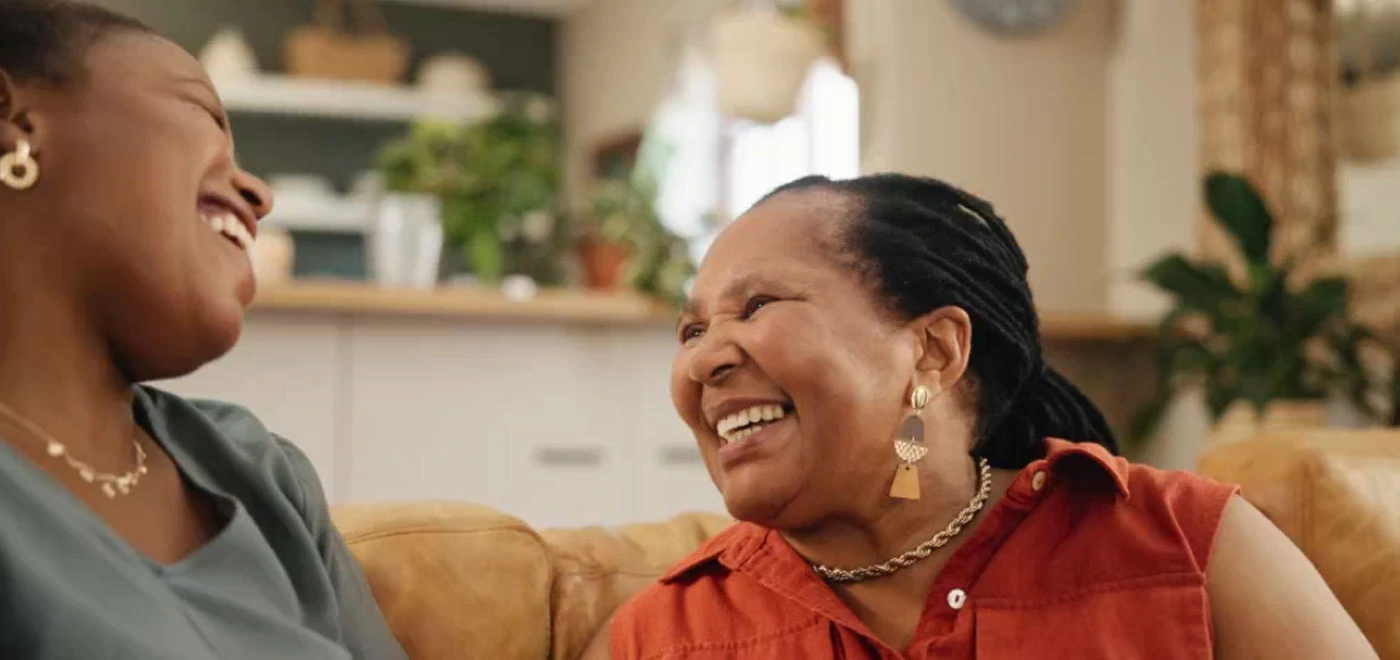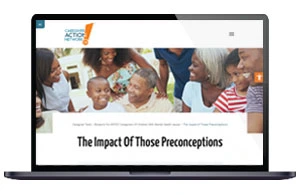Celebrating National Family Caregivers Month: BIPOC Caregiver Resources and Support
Celebrating National Family Caregivers Month: BIPOC Caregiver Resources and Support

November marks National Family Caregivers Month, a time to honor and recognize the dedication of family caregivers who provide unwavering support to loved ones. For BIPOC caregivers, the caregiving journey can come with unique challenges, influenced by cultural expectations, systemic inequalities, and barriers to accessing healthcare. This month, we not only celebrate the resilience and dedication of caregivers but also shine a light on the resources and support systems available to help BIPOC families.
In this article, we’ll explore the specific mental health challenges faced by BIPOC caregivers and introduce essential tools and BIPOC caregiver resources that can empower you. We will also introduce our free online tool designed to provide comprehensive support for BIPOC caregivers managing their loved ones’ mental health.
Unique Challenges Faced by BIPOC Caregivers
Family caregiving, while rewarding, often brings emotional, physical, and mental strain. For BIPOC caregivers, these challenges can be magnified due to systemic racism, economic disparities, and cultural expectations that can make it difficult to access the necessary support. Below are some of the significant challenges faced by BIPOC caregivers:
1. Cultural Expectations and Family Dynamics
In many BIPOC communities, caregiving is seen as a duty or responsibility that must be fulfilled without complaint. Often, there is an expectation that the family, particularly women, will take on caregiving roles. While this sense of responsibility can foster close-knit family relationships, it can also lead to burnout when caregivers feel pressure to shoulder the burden alone.
2. Access to Mental Health Services
Access to mental health services remains a significant barrier for BIPOC caregivers. Many are hesitant to seek out mental health care due to cultural stigma surrounding therapy and mental health treatment. Additionally, even when services are available, there is often a lack of culturally competent care, which can lead to ineffective or misunderstood treatment. A 2018 study by the American Psychological Association found that less than 15% of psychologists are from racial and ethnic minority backgrounds, making it harder for BIPOC caregivers to find professionals who understand their cultural experiences.
3. Financial Strain
BIPOC families are more likely to face financial hardships, with many caregivers balancing multiple jobs or responsibilities to provide care for their loved ones. The financial strain can intensify when caregivers need to take time off work or pay for additional care services, further contributing to the stress and anxiety experienced during their caregiving journey.
Introducing Our Free Online Tool for BIPOC Caregivers
 Recognizing these challenges, we have developed a free online tool tailored specifically for BIPOC caregivers. This tool provides access to valuable resources, expert insights, and a supportive community to help caregivers navigate the mental health needs of their loved ones.
Recognizing these challenges, we have developed a free online tool tailored specifically for BIPOC caregivers. This tool provides access to valuable resources, expert insights, and a supportive community to help caregivers navigate the mental health needs of their loved ones.
Key Features of the Online Tool:
- 20 Detailed Lessons: Our tool includes 20 comprehensive lessons that cover topics such as managing caregiver stress, recognizing mental health conditions in loved ones, and understanding how to balance caregiving with personal needs. Each lesson is specifically designed to address the unique cultural contexts faced by BIPOC families.
- Insightful Audio Clips: Caregivers can listen to audio clips from mental health experts, particularly those from BIPOC backgrounds, offering practical advice and emotional support. These audio clips provide culturally relevant guidance to caregivers.
- Culturally Competent Resources: The tool offers a range of culturally competent resources to help caregivers navigate mental health challenges. These resources are created with an understanding of the cultural, social, and economic factors that BIPOC caregivers often experience.
How the Tool Supports Caregivers
This online tool is designed to provide practical advice, emotional support, and a community of caregivers who understand the challenges of balancing personal well-being with caregiving responsibilities. Whether caregivers are looking for coping strategies, self-care tips, or a network of like-minded individuals, our tool offers everything they need to thrive.
Explore our BIPOC caregiver resources and lessons by visiting our free online tool.
Additional Resources for BIPOC Caregivers
In addition to our online tool, there are several external resources and organizations that offer valuable support to BIPOC caregivers:
- Therapy for Black Girls: This is a popular online resource that connects Black women, including caregivers, with culturally competent mental health professionals. Therapy for Black Girls also offers a podcast with advice on mental health and self-care.
- The National Asian American Pacific Islander Mental Health Association (NAAPIMHA): This organization promotes mental health awareness and provides resources specifically for Asian American and Pacific Islander communities.
- Latinx Therapy: Latinx Therapy is a platform dedicated to breaking the stigma of mental health in the Latinx community. It provides a directory of culturally competent mental health professionals and resources for caregivers.
- Black Mental Health Alliance (BMHA): BMHA offers educational programs, advocacy, and resources tailored to the mental health needs of Black individuals, including caregivers.
- National Alliance for Caregiving (NAC): NAC provides research, advocacy, and resources to support caregivers. They have specific resources for BIPOC caregivers and highlight programs aimed at improving access to services.
Celebrating BIPOC Caregivers: Honoring Their Work and Sacrifice
 As we celebrate National Family Caregivers Month this November, it’s important to acknowledge the unique contributions of BIPOC caregivers. The tireless work and emotional labor they provide often go unnoticed, but their impact is profound. By offering culturally competent resources and tools, we can empower these caregivers to care for themselves while they care for others.
As we celebrate National Family Caregivers Month this November, it’s important to acknowledge the unique contributions of BIPOC caregivers. The tireless work and emotional labor they provide often go unnoticed, but their impact is profound. By offering culturally competent resources and tools, we can empower these caregivers to care for themselves while they care for others.
If you are a BIPOC caregiver, we encourage you to explore the free online BIPOC caregiver resources available to you, connect with support networks, and seek out professional help when needed. By doing so, you can ensure you are providing the best care possible, not just for your loved ones, but for yourself as well.
Acknowledging the Journey, Offering Support
National Family Caregivers Month is a time to honor the incredible sacrifices and efforts of caregivers, particularly within BIPOC communities, who often face added pressures. It’s essential that these caregivers have access to the support systems and resources they need to maintain their mental health and well-being while caring for their loved ones.
By utilizing tools like our free online resource, caregivers can receive guidance, connect with peers, and find culturally competent care to help them navigate their caregiving journey. Start using our BIPOC caregiver resources today by visiting our online tool, and join the growing community of caregivers who are making a difference every day.



